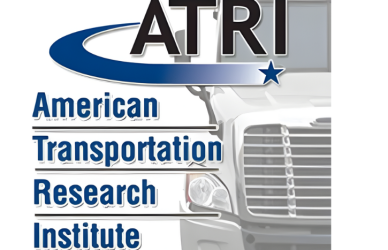In the past five years, global shippers have faced numerous unexpected challenges, leading logistics providers to develop stronger solutions to create more durable supply chains. In response, new technologies have emerged such as advanced freight forwarding platforms, real-time visibility tools, and warehouse robotics. These options now provide shippers with greater flexibility to navigate through disruptions.
If you’re looking to keep up with the evolving landscape of supply chain management, here are three emerging technology trends to consider for your organization by 2023.
Artificial Intelligence
OpenAI’s ChatGPT technology, launched in November 2022, provides a game-changing solution for business executives and logistics providers. With lightning-fast speed, it can generate a range of materials, from sales pitches to training documents, with a high degree of accuracy.
According to McKinsey’s report on AI technology, “Notes from the AI frontier: Applications and value of deep learning,” the potential benefits for transportation and logistics businesses are staggering, with an 89% increase in value beyond traditional analytics. Using data-centric solutions, generative adversarial networks, and reinforcement learning, businesses can improve their predictive maintenance, forecasting, and customer service management tools.
One of the most effective ways to deploy AI in the logistics industry is by using robotic process automation (RPA). By ingesting freight data, trade documents, and emails, the insights provided by AI can be translated into automated, rule-based tasks for front- and back-office processes. This approach streamlines current operations, enabling logistics professionals to save time and money, and optimize their revenue streams even in markets of low demand.
Get ahead of the competition and find out how AI technology can transform your logistics business today.
“2023 is going to be a year where you have to outdo the competition. You can’t rely on natural growth, because the growth isn’t going to be there like it has in the last couple of years. You’ve got to beat the competition. Speed is a way to do that,” said Joel McGinley, managing director of RPA provider Hubtek. Hubtek’s TABi product automates processes in sales, operations, accounting and customer service.
Paperless Trade
The transportation industry heavily relies on paper records, including bills of lading, payroll, and customer billing. However, transitioning to digital processes not only benefits the environment but also allows for improved data collection, real-time shipment tracking, reduced costs, and better internal operations.
According to MyCarrier, digitizing manual processes could save logistics providers up to 2% of freight costs under management, resulting in potential worldwide savings of $1.2 billion if the entire industry adopts paperless operations.
To facilitate this shift, MyCarrier and 29 other transportation companies have formed the Digital LTL Council of the National Motor Freight Traffic Association to create digital standards. LTL provider RR Donnelley partnered with the group to digitize its manual processes, resulting in $250,000 in annual cost savings and reduced call volume.
Interestingly, paperless operations are also gaining popularity in international trade. A McKinsey study predicts that electronic bills of lading could save $6.5 million in direct costs and allow for over $30 billion in new trade volume. With up to 40% of containerized trade transactions currently relying on paper records, the potential for savings and efficiency gains is significant.
Supply Chain Finance
Looking for a smart way to boost your working capital and expand your business in emerging markets? Consider supply chain finance. This innovative strategy helps companies generate new sales and revenue by connecting them with financial institutions all over the world.
And with the power of blockchain technology, supply chain finance is now more efficient and effective than ever before. By automating paper processes and streamlining trade finance, it’s never been easier to grow your business and improve your bottom line.
In fact, supply chain finance is so popular these days that 66% of banks have adopted it as a key part of their operations. And it’s no wonder – with rapid settlement, reduced risk, and improved transparency and relationships with carrier vendors, supply chain finance is the smart choice for companies of all sizes.
The future of supply chain management is ever-evolving and in 2023, these are three technologies shaping how we do business. Embracing them can help us streamline our processes and provide game-changing solutions to long-standing issues. By adopting these emerging technologies, organizations can stay ahead of the competition and navigate the evolving landscape of supply chain management with confidence.
Source: FreightWaves











